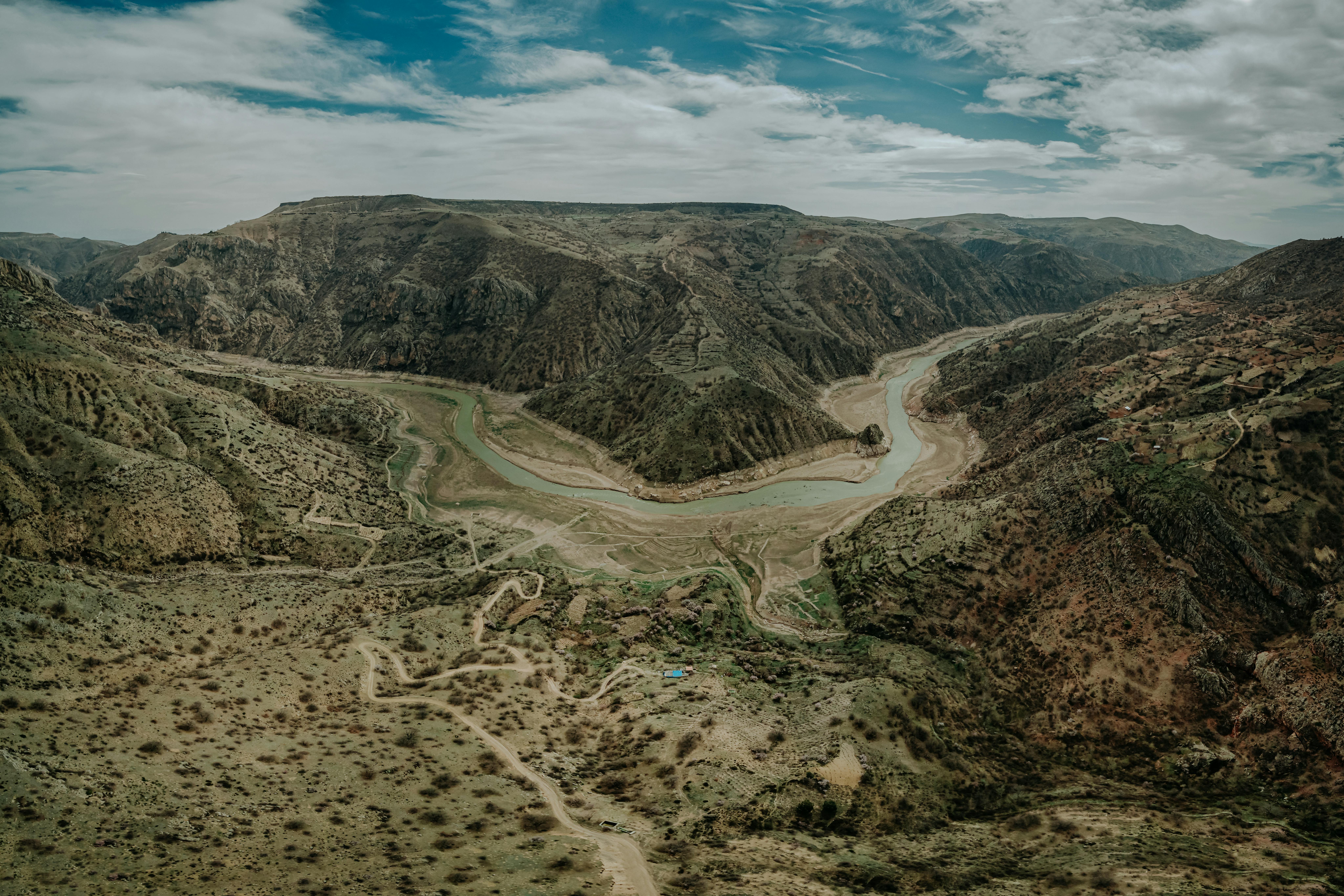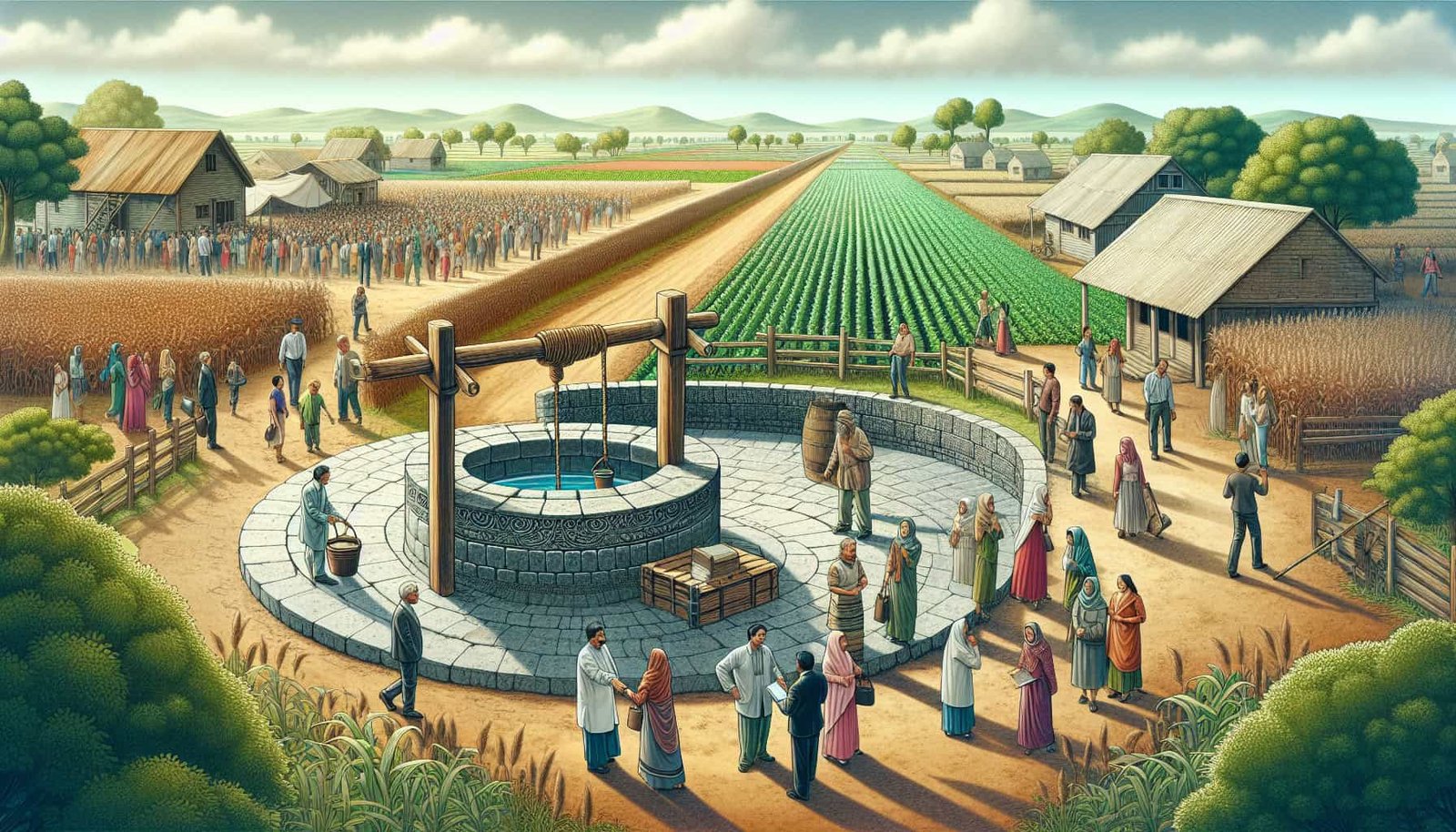In rural areas, well owners play a crucial role in providing water for their communities. But have you ever wondered what role agricultural agencies play in supporting these well owners? From providing technical assistance and advice to promoting sustainable irrigation practices, agricultural agencies have a vital role in ensuring the success and longevity of well owners in rural areas. In this article, we will explore the various ways in which agricultural agencies support these individuals, fostering a strong and resilient agricultural community.
Understanding the Importance of Agricultural Agencies in Rural Areas
Agricultural agencies play a crucial role in supporting well owners in rural areas. These agencies recognize the significance of well owners and the important role they play in maintaining a sustainable agricultural environment. Through their services and initiatives, agricultural agencies work towards addressing the needs of well owners, providing them with the necessary tools, resources, and guidance to ensure the efficient and responsible management of their wells. By understanding the importance of these agencies, we can appreciate the essential role they play in rural communities.
The Significance of Well Owners in Rural Areas
Well owners in rural areas are the backbone of agricultural practices, as they rely on these wells for irrigation, livestock watering, and other essential agricultural activities. These individuals invest their time, energy, and resources into maintaining their wells to sustain their agricultural operations. Without well owners, rural communities would struggle to maintain sustainable and productive farms. By supporting well owners, agricultural agencies contribute to the overall development and well-being of these communities, ensuring the longevity and prosperity of agriculture in rural areas.
The Role of Agricultural Agencies in Supporting Well Owners
Agricultural agencies provide a wide range of support to well owners in rural areas. These agencies recognize the unique challenges faced by well owners and strive to meet their needs through various initiatives. From offering technical assistance to monitoring water quality, providing financial support, implementing water conservation programs, facilitating collaboration, advocating for well owners’ interests, addressing environmental concerns, and providing ongoing support and education, agricultural agencies play a multifaceted role in supporting well owners.
Identifying the Needs of Well Owners
To effectively support well owners, agricultural agencies undertake surveys to identify their requirements. These surveys aim to gather information about the challenges well owners face, their current practices, and their aspirations for improved well management. By understanding these needs, agricultural agencies can tailor their programs and services to address specific areas of concern. Through these initiatives, well owners feel heard and supported, leading to more effective and impactful assistance provided by the agencies.

Surveying Well Owners’ Requirements
Agricultural agencies conduct surveys to gauge the requirements of well owners in rural areas. These surveys involve engaging with the well owners through questionnaires or interviews, seeking insights into their concerns, and understanding their priorities. By conducting such surveys, agricultural agencies can gain a comprehensive understanding of the needs and expectations of well owners, which guides their approach to providing support and assistance.
Evaluating the Challenges Faced by Well Owners
In addition to understanding the requirements of well owners, agricultural agencies evaluate and analyze the challenges they face. Whether it is water scarcity, well maintenance issues, lack of technical expertise, or financial constraints, these agencies explore the obstacles well owners encounter. Through this evaluation, agricultural agencies gain valuable insights to design targeted solutions and programs that address these challenges directly.
Providing Technical Assistance
One of the key roles of agricultural agencies is to offer expert guidance on well maintenance to well owners in rural areas. They provide technical assistance by connecting well owners with professionals who can assess, repair, and maintain their wells effectively. By offering this guidance, agricultural agencies ensure that well owners have access to the expertise required to keep their wells in optimal condition, thereby maximizing their agricultural output.
Offering Expert Guidance on Well Maintenance
Agricultural agencies collaborate with experts in well maintenance to provide well owners with up-to-date knowledge and guidance. These agencies conduct workshops, training sessions, and educational programs that focus on vital aspects of well maintenance. By equipping well owners with the necessary knowledge and skills, agricultural agencies empower them to take proactive steps in ensuring the longevity and efficiency of their wells.

Educating Well Owners on Water Conservation
Water conservation is a crucial aspect of sustainable agriculture in rural areas. Agricultural agencies recognize the importance of water conservation and educate well owners on efficient water usage practices. They emphasize the significance of adopting irrigation techniques and technologies that minimize water wastage. By educating well owners on water conservation, agricultural agencies play a vital role in preserving this precious resource and encouraging responsible agricultural practices.
Providing Training and Workshops on Well Operation
To further support well owners, agricultural agencies organize training sessions and workshops on well operation. These educational programs cover topics such as well functioning, water extraction optimization, and regular maintenance procedures. By enhancing well owners’ understanding of well operation, agricultural agencies empower them to make informed decisions and take appropriate actions towards the sustainable management of their wells.
Monitoring Water Quality
Agricultural agencies understand the importance of clean and safe water for agricultural activities. To ensure the well owners’ access to high-quality water, these agencies conduct regular water testing. By analyzing water samples, they can identify any potential contaminants or pollutants that may pose a risk to agricultural operations. This monitoring enables well owners to take timely action, safeguarding their crops, livestock, and overall agricultural productivity.
Conducting Regular Water Testing
Agricultural agencies implement water testing programs that involve collecting samples from well owners’ wells at regular intervals. These samples undergo rigorous analysis to assess water quality. By monitoring for parameters such as pH levels, chemical composition, and bacterial contamination, agricultural agencies can ensure that well owners are aware of any potential risks and can take appropriate measures to mitigate them.

Offering Guidance on Water Treatment and Protection
In addition to water testing, agricultural agencies provide well owners with guidance on water treatment and protection. They advise on effective treatment methods, such as filtration or disinfection, to maintain the water quality within acceptable standards. Furthermore, these agencies also educate well owners on best practices for protecting water sources from contamination, ensuring the long-term viability of their wells and the safety of their agricultural activities.
Supporting Well Owners Financially
Agricultural agencies recognize that financial constraints can hinder the well owners’ ability to maintain their wells and adopt sustainable practices. To alleviate this burden, these agencies provide grants and financial assistance to support well maintenance and repairs. By providing financial aid, agricultural agencies ensure that well owners can overcome monetary barriers and continue to operate their wells efficiently.
Providing Grants for Well Maintenance and Repairs
Agricultural agencies offer grants specifically dedicated to well maintenance and repairs. Well owners can apply for these grants to fund essential repairs, purchase equipment, or undertake maintenance activities. By providing financial resources, agricultural agencies enable well owners to address any issues promptly, ensuring the uninterrupted and optimal functioning of their wells.
Assisting with Funding for Water Conservation Initiatives
Water conservation initiatives are pivotal in ensuring sustainable agricultural practices. To promote such initiatives, agricultural agencies assist well owners in securing funding. These agencies help well owners access the necessary financial resources to implement water-saving technologies, irrigation systems, or other conservation measures. By facilitating funding opportunities, agricultural agencies actively contribute to conserving water resources in rural areas.

Implementing Water Conservation Programs
Agricultural agencies implement water conservation programs that aim to promote sustainable agricultural practices among well owners. These programs focus on guiding well owners towards adopting efficient irrigation techniques, reducing water wastage, and optimizing water usage. By implementing such programs, agricultural agencies foster a culture of mindful water consumption, ultimately contributing to the overall sustainability of agriculture in rural areas.
Promoting Sustainable Agriculture Practices
Agricultural agencies play an important role in promoting sustainable agriculture practices among well owners. They advocate for the use of organic fertilizers, crop rotation, and integrated pest management techniques that minimize environmental impact. By encouraging the adoption of sustainable practices, agricultural agencies ensure that well owners contribute to the preservation of soil health, biodiversity, and ecological balance in their communities.
Encouraging Well Owners to Adopt Efficient Irrigation Techniques
Water conservation begins with the efficient use of irrigation systems. Agricultural agencies actively encourage well owners to adopt water-efficient irrigation techniques, such as drip irrigation or precision sprinklers. Through workshops, training sessions, and demonstrations, these agencies emphasize the benefits of efficient irrigation in maximizing water usage and reducing waste. By embracing these techniques, well owners can enhance water conservation efforts and improve the sustainability of their agricultural practices.
Facilitating Collaboration and Networking
Agricultural agencies foster collaboration and networking opportunities for well owners to connect and share knowledge and resources. By creating platforms for well owners to come together, these agencies enable the exchange of ideas, experiences, and best practices. This collaboration empowers well owners to learn from one another, overcome challenges collectively, and further elevate the success and sustainability of agriculture in rural areas.

Creating a Platform for Well Owners to Connect
Agricultural agencies create online forums, local groups, or networks that serve as platforms for well owners to connect. These platforms enable well owners to share their experiences, discuss common challenges, and seek advice from peers. By facilitating these connections, agricultural agencies foster a sense of community among well owners, empowering them with a support system that understands their unique circumstances and needs.
Promoting Knowledge Sharing and Resources
In addition to facilitating connections, agricultural agencies promote knowledge sharing among well owners. They organize seminars, conferences, and webinars where experts and experienced individuals share valuable insights and resources. Through these knowledge-sharing initiatives, well owners can stay updated on the latest trends, techniques, and research in well management. This continuous learning enriches their understanding and equips them with the tools necessary for effective well ownership.
Advocating for Well Owners’ Interests
Agricultural agencies advocate for the interests of well owners at local and government levels. They act as a voice for well owners, representing their concerns and requirements in policy discussions and decision-making processes. By actively engaging with policymakers and stakeholders, these agencies ensure that the policies and regulations implemented consider the unique needs and challenges faced by well owners in rural areas.
Representing Well Owners at Local and Government Levels
Agricultural agencies actively engage in advocacy efforts by representing well owners in relevant forums and meetings. They communicate the concerns and experiences of well owners to local, regional, and national authorities, bridging the gap between the well owners and policymakers. By representing the interests of well owners, agricultural agencies strive to shape policies that support and facilitate the sustainable management of wells in rural areas.
Influencing Policies and Regulations for Well Owners
Through their representation and advocacy, agricultural agencies have the opportunity to influence policies and regulations that directly impact well owners in rural areas. They work towards ensuring that these policies are well-aligned with the needs and challenges faced by well owners. By influencing policies and regulations, agricultural agencies create an enabling environment for well owners to thrive, fostering a sustainable and supportive framework for rural agricultural communities.
Addressing Environmental Concerns
Agricultural agencies play a crucial role in addressing environmental concerns related to well owners’ activities. They collaborate with well owners to promote compliance with environmental regulations and encourage the adoption of eco-friendly practices. By addressing these concerns, agricultural agencies contribute to the preservation of natural resources, protection of ecosystems, and the overall sustainability of agriculture in rural areas.
Ensuring Well Owners Comply with Environmental Regulations
Agricultural agencies emphasize the importance of complying with environmental regulations to well owners. They provide guidance and support in understanding and implementing these regulations effectively. By assisting well owners in meeting the required standards, agricultural agencies ensure that their activities have minimal negative impact on the environment, preserving the ecological balance and long-term sustainability of rural areas.
Promoting Eco-friendly Practices among Well Owners
In addition to compliance, agricultural agencies promote eco-friendly practices among well owners. They encourage the use of organic fertilizers, integrated pest management, soil erosion prevention techniques, and other sustainable agricultural methods. By promoting eco-friendly practices, agricultural agencies contribute to the conservation of natural resources, reduction of pollution, and the overall enhancement of environmental well-being.
Continual Support and Education
Agricultural agencies understand that supporting well owners requires ongoing assistance and education. They strive to provide continuous support to ensure the long-term success and sustainability of well owners’ practices. Through organizing seminars, webinars, and training programs on the latest well management techniques, agricultural agencies empower well owners with updated knowledge and resources.
Providing Ongoing Assistance to Well Owners
Agricultural agencies commit to providing ongoing assistance to well owners in rural areas. They establish channels of communication, such as helplines or online portals, where well owners can seek guidance and support whenever needed. By offering continuous assistance, agricultural agencies ensure that well owners have access to reliable information and expertise to address any challenges they may encounter.
Organizing Seminars and Webinars on Latest Well Management Techniques
To keep well owners informed about the latest developments in well management, agricultural agencies organize seminars and webinars. These educational events feature experts who share insights, techniques, and best practices that well owners can implement to enhance the efficiency and sustainability of their well operations. By facilitating access to these resources, agricultural agencies enable well owners to stay updated and continuously improve their well management practices.
In conclusion, agricultural agencies are vital in supporting well owners in rural areas. Through a range of initiatives and programs, these agencies address the specific needs, challenges, and aspirations of well owners. By providing technical assistance, monitoring water quality, offering financial support, implementing water conservation programs, facilitating collaboration, advocating for interests, addressing environmental concerns, and providing ongoing support and education, agricultural agencies ensure the success and sustainability of well owners in rural communities. It is through their dedication and commitment that well owners can thrive, contributing to the vitality of agriculture in rural areas.

